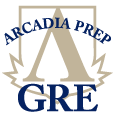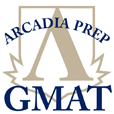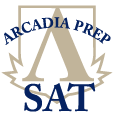That placebos can cure everything from dandruff to leprosy is well known. ... ...
Which one of the following most accurately characterizes the author’s attitude toward placebo treatment?
(A) reserved advocacy
(B) ...
(C) ...
(D) ...
(E) ...
*This question is included in
Nova Reading - THE THREE-STEP METHOD:
Replies to This Thread: 0
|
----
Posted: 05/22/2012 19:09
Please give more detail on why you chose an answer. Nothing in this paragraph seems reserved to me. The author argues that lying may be appropriate. He completely dismisses modn drugs as affective. How is he not zealous for this product? I almost picked B because he does seems to feign objectivity, but I don't see anything reserved about him. Why is A correct? Is his faux detached tone the reason. Please give more detail. The answer was short on explanation.

Contributor
Replies to This Thread: 0
|
----
Posted: 05/24/2012 16:45
Matthew,
A zealous person argues passionately for a position with a strong bias due to personal conviction. It is often used in religious or ideological contexts.
In this case, the author does use data instead of personal conviction, even though the way he interprets the data may be very wrong.
The solution writer defines the difference between advocacy and objectivity by whether or not personal opinion exists. Since the author inserts his personal opinions that placebo works and that their used should be expanded, the piece is by definition not an objective article.
Replies to This Thread: 0
|
----
Posted: 05/24/2012 21:31
OK- so since he used personal opinion but used data instead that equates to reserved advocacy? If he had ignored data and argued against it, that would have been zealotry? I see your point. The fact that he almost promotes lying seems a little zealous but I guess it is his tone and his use of data that matter.
Replies to This Thread: 0
|
----
Posted: 05/24/2012 21:34
Zealots sometimes use data so where would the line be drawn? Do they use more passion than this writer? I sensed some passion in his advocacy but it probably is not to a religious level.

Contributor
Replies to This Thread: 0
|
----
Posted: 05/24/2012 22:02
I know it's a fine line, that's why the questions are difficult. For example, some people would cite data from their own sources that are not acceptable to the mainstream scientific community about the cause of autism or evolution vs. creationism, in order to support their opinions. In this case, the author cites the same data that would be used by mainstream scientists, but the author seems to interpret the data incorrectly and in the process injects his or her own opinions.

Contributor
Replies to This Thread: 0
|
----
Posted: 05/24/2012 22:04
Btw, this is just exercise, how to focus when reading a dense passage and identify key words and phrases.










